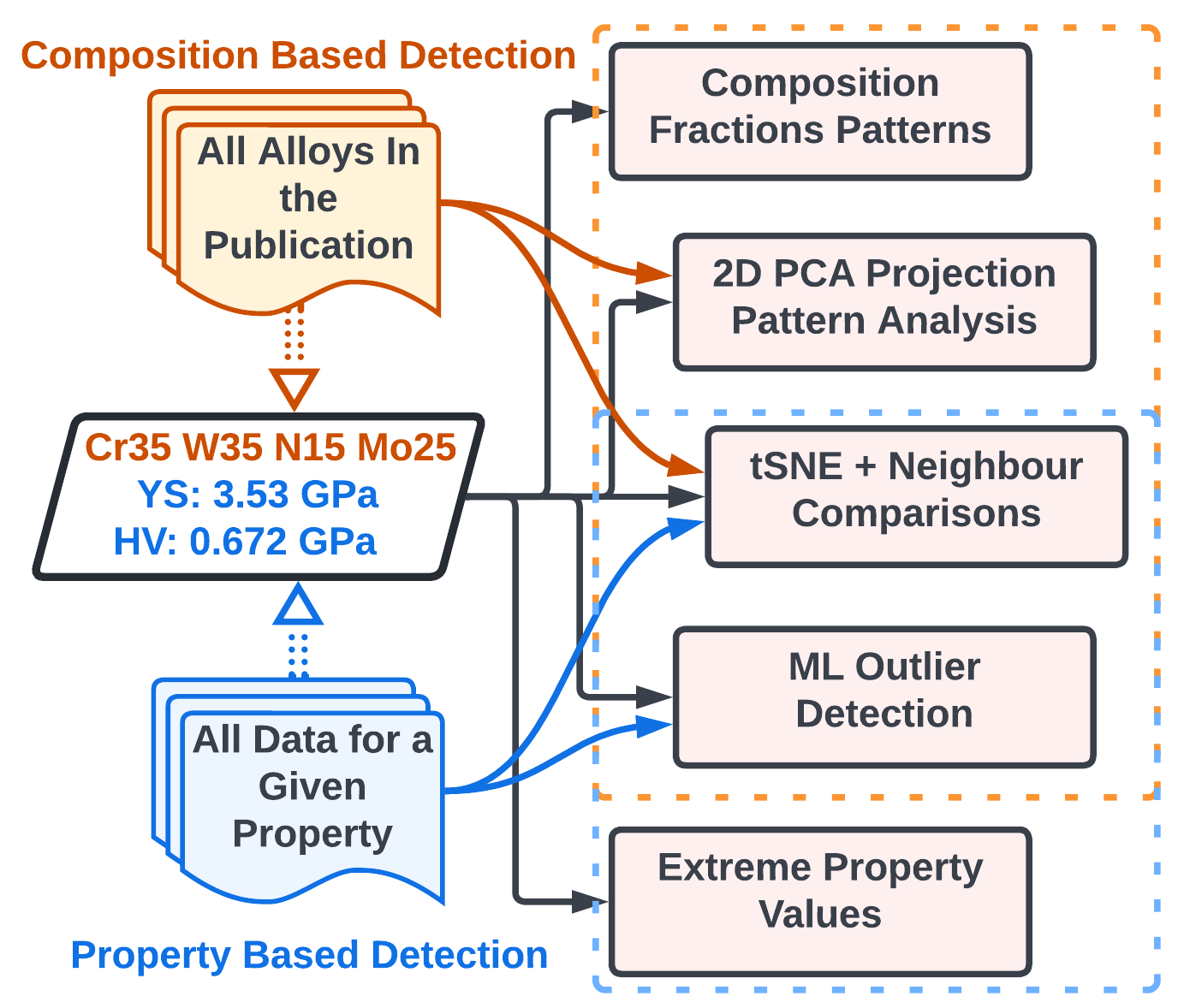PyQAlloy
PyQAlloy development is a part of ULTERA Project carried under the DOE ARPA-E ULTIMATE program that aims to develop a new generation of materials for turbine blades in gas turbines and related applications. The ULTERA Project, along is led by Phases Research Lab at Penn State. As a part of it, we developed a new large-scale database of high entropy alloys (HEAs) reported in the literature along with their experimental properties. As of March 2023, the database contains around 6,000 property data points of 2,500 HEAs coming from almost 500 publications. It is currently the largest database of HEAs in the world, and while it is not publicly available we welcome collaborators who would like to use it in their research or contribute to it.
ULTERA Database is not simply a dataset but features a robust set of data processing, curation, and aggregation tools we built for the last 3 years. These tools allowed us to remove around the 5-10% erroneous data we identified in datasets available in the literature. Most of our tools are not published yet, as the project is ongoing (they give us a competitive advantage), and because most of the tools require an elaborate computing infrastructure setup.
However, as some of them are less-infrastructure-demanding and are, at the same time highly applicable outside HEAs, we decided to release them as separate packages. This repository contains the first of such packages, PyQAlloy, which is a Python package for detecting data abnormalities in datasets of arbitrary alloys, ranging from complex, concentrated solutions, i.e. High Entropy Alloys (HEAs) / Multi Principle Element Alloys (MPEAs) / Concentrated Complex Alloys (CCAs) to more traditional alloys such as steels, nickel-based superalloys, etc.

Note
This project is under active development. We recommend using released (stable) versions.








